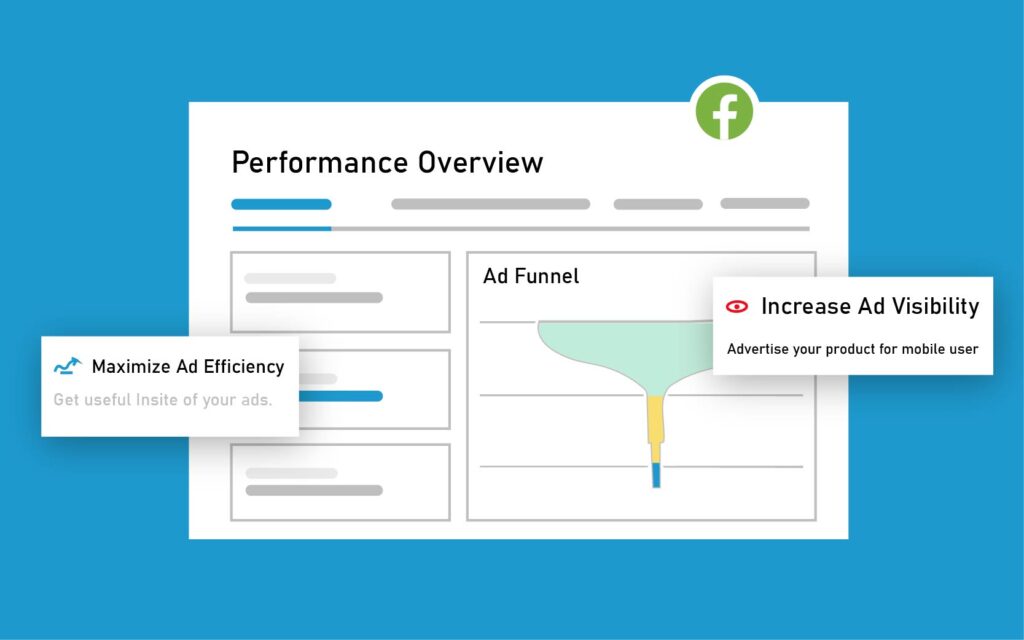
LinkedIn Client Hunting Course in Mohakhali
LinkedIn is more than just a platform for networking; it’s a powerful tool for finding

If you want my team to manage your good marketing for you, click here
Uttara offers an exceptional opportunity for individuals looking to enhance their digital marketing skills through a specialized Facebook Marketing Course. He, she, or they will explore various aspects of Facebook advertising, including audience targeting, content creation, and performance analysis. This guide delineates the key components of the course, who it is designed for, and how it empowers participants to leverage one of the most powerful social media platforms for business growth. With a hands-on approach, learners will gain practical insights to effectively navigate and utilize Facebook’s marketing tools.

A comprehensive Facebook marketing approach incorporates various strategies to engage potential customers effectively. Key strategies include:
Perceiving these strategies allows marketers to tailor their approach according to their target audience’s preferences.
| Strategy | Purpose |
|---|---|
| Content Marketing | To share valuable content and engage users. |
| Community Engagement | To build a loyal customer base. |
| Facebook Live | To create real-time interactions. |
| Influencer Collaborations | To leverage influencers for brand recognition. |
| Event Promotion | To drive attendance to physical or virtual events. |
Assuming a business wants to grow its audience naturally, organic marketing proves effective on Facebook. It involves creating engaging content without paid promotions, aiming to foster a genuine connection with the audience. This approach strengthens brand loyalty through consistent interactions and authentic storytelling.
To expand their reach more quickly, businesses may opt for paid advertising on Facebook. This strategy allows marketers to target specific demographics based on user data, ensuring that the ads reach the right audience. They can utilize various ad formats, such as images, videos, or carousels, tailored to meet marketing objectives.
It is important for marketers to track the performance of their paid advertising efforts continuously. By analyzing key metrics, they can optimize campaigns for better results and understand which aspects resonate well with their audience. This data-driven approach enables them to adjust their advertising strategies effectively, maximizing return on investment while maintaining brand relevance.
It is important for businesses to understand the key factors that contribute to a successful Facebook marketing campaign. These elements can greatly influence a campaign’s outcome:
Recognizing these factors can lead to increased engagement and improved return on investment.
On conducting a thorough target audience analysis, marketers can identify the demographics, interests, and behaviors of their potential customers. This allows them to tailor their messaging and content to meet the needs of their audience effectively, increasing the likelihood of conversion.
Now, effective budget planning is vital for any Facebook marketing campaign to ensure optimal resource allocation. This includes determining how much to invest in ads, content creation, and audience engagement strategies.
Another important aspect of budget planning is the ongoing evaluation of spending and performance metrics. By tracking expenses and results, marketers can adjust their budgets dynamically, ensuring that they allocate funds toward the most successful strategies and channels, ultimately enhancing their campaign’s effectiveness.
In this section, they will provide a comprehensive breakdown of the imperative steps involved in Facebook marketing. This guide will help them navigate the platform effectively to maximize their outreach and engagement.
| Step | Description |
| 1 | Setting Up a Business Page |
| 2 | Creating Engaging Content |
Setting up a business page on Facebook is an imperative first step for any marketer. She should ensure that the page is accurately filled with all pertinent information, such as business hours, location, and contact details. By utilizing a professional profile picture and cover photo, they can create a strong first impression on potential customers.
While creating engaging content is vital for driving user interaction, it requires a strategic approach. They should focus on producing posts that resonate with their audience, utilizing visuals, videos, and storytelling to capture attention.
Another effective strategy is to encourage user-generated content by inviting customers to share their experiences. This not only fosters a sense of community but also adds authenticity to the brand. Additionally, businesses can utilize interactive formats like polls and quizzes to further increase engagement levels, ensuring they keep their audience interested and involved.
All marketers should implement a few imperative strategies to enhance their effectiveness on Facebook. They need to gain a clear understanding of their target audience, engage consistently with followers, and utilize high-quality visuals. Additionally, they should:
After mastering these strategies, they can see improved engagement and reach on their campaigns.
The use of Facebook Insights is vital for any marketer aiming to refine their strategy. They can track engagement metrics, audience demographics, and post performance to gauge what resonates most with their audience and adjust their content accordingly.
While creating ads, marketers must focus on targeting the right audience and experimenting with different ad formats to find the most effective approach. They should continuously monitor ad performance to identify trends and make informed adjustments.
Another key aspect of optimizing ad performance involves A/B testing different visuals, copy, and calls to action. This process can help them discover which combinations generate the highest engagement and conversion rates. By analyzing results from these tests, they can refine their advertising strategy, ensuring they connect with their audience more effectively while maximizing their marketing budget.
Despite the widespread popularity of Facebook as a marketing tool, there are both advantages and disadvantages that marketers should consider to optimize their strategies.
| Pros | Cons |
|---|---|
| Wide reach and user base | Constant algorithm changes |
| Targeted advertising options | Ad fatigue among users |
| Rich engagement opportunities | High competition for attention |
| Cost-effective for small businesses | Potential negative feedback visibility |
| Varied content formats available | Declining organic reach |
Even with the challenges it presents, Facebook marketing offers significant benefits. It boasts an extensive user base that allows businesses to connect with diverse demographics. Additionally, the platform provides sophisticated targeting options that enable marketers to reach their ideal audience more effectively. The variety of content formats—ranging from videos to stories—further enhances engagement levels, making it possible for brands to connect meaningfully with their audience, thus driving brand awareness and customer loyalty.
There’s an undeniable set of challenges marketers face when utilizing Facebook for marketing purposes. These limitations can impact the effectiveness of campaigns and require continuous adaptation.
Challenges arise from the evolving nature of Facebook’s algorithm, which can dramatically affect ad visibility and engagement levels. As such, advertisers must stay informed and agile in their strategies. Additionally, with an overwhelming amount of content shared daily, standing out amidst high competition can be tough. Users may experience ad fatigue, leading to diminishing returns on repeated efforts. Moreover, the visibility of negative feedback can tarnish a brand’s reputation, making it crucial for marketers to engage proactively with their audience.
With these considerations, individuals seeking to enhance their social media marketing skills will find the Facebook Marketing Course in Uttara to be a valuable resource. They will learn crucial strategies and best practices to effectively engage audiences and drive business results on the platform. By participating in this course, she can gain insights into analytics, content creation, and advertising techniques, equipping her with the tools necessary to succeed in the competitive digital landscape. Ultimately, he will be well-prepared to navigate the evolving world of Facebook marketing with confidence.
It is really a win-win situation 😲 for you to join the “Digital Wit Academy” Facebook group and gain the most updated information about different digital marketing strategies.

Kamrul Hassan is the founder and CEO of Digital Wit Academy. As you know, Digital Wit Academy is a fast-growing Bangla e-learning platform that provides quality knowledge and support to students. Kamrul Hassan is a government-certified Professional Digital Marketing Expert and a trainer/mentor in the Youth and sports ministry projects of the BD government. His Team Digital Wit Academy consists of well-educated and highly motivated core team members who are very friendly. They believe in quality support to make the students’ careers more successful. Support is the best part of the Digital Wit Academy courses.

Stop wasting money and unlock the hidden potential of your advertising skills with Digital Wit Academy.

LinkedIn is more than just a platform for networking; it’s a powerful tool for finding

Most professionals are aware of LinkedIn’s potential as a powerful tool for networking and client

Course participants will discover the art of leveraging LinkedIn client hunting to attract effectively. In

With the rise of digital networking, mastering LinkedIn for client acquisition has never been more

There’s an exciting opportunity for professionals seeking to enhance their networking skills through my LinkedIn
Hey, I’m Kamrul Hassan, the mastermind of Digital Wit. I’m confident to grow your brand. My only question is, will you grab the opportunity?